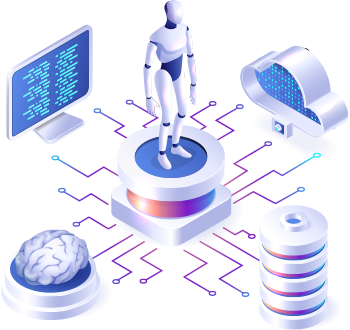Job Description:
Use deep learning techniques to solve challenging problems in computer vision and healthcare. As part of a research team, the candidate is required to formulate the problems, design new models and propose novel approaches. Requirement:- MS or PhD in computer science or any related field
- Background knowledge of machine learning, deep learning, digital image processing, and computer vision
- Familiar with convolutional neural networks
- Experience in one or more of the following: image recognition, object detection, image segmentation, generative adversarial networks
- Familiar with reading academic papers (CVPR/ICCV/ECCV/MICCAI)
We’re seeking a Data Engineer, Digital & Comp Pathology who will be involved in the development and support of software applications, tools and data management pipelines for research and clinical purposes. Following modern product development practices, you will also assist in the design, implementation and maintenance of tools that extract and manipulate data from various sources, including in-house and external databases, for computational pathology. This is an extraordinary opportunity to be part of a high-performing team and to pursue a life-changing mission with unique technical challenges!
Responsibilities
- Create software and data pipelines that enable the ingestion, transformation and transfer of large amounts of structured and unstructured data from various databases and filesystems sources, that are destined for the development of computation pathology applications and algorithms.
- Create database logic to automatically fetch and store data in various forms. Architect and develop scalable, reliable and high-performance backend applications.
- Participate in server, application, and database development and in the building and testing of complex systems.
- Design and develop software tools into existing resources. Be responsible for design, coding, testing, packaging, debugging, documentation and deployment of software systems.
- Familiarity with DevOps practices.
- Familiarity with Data Warehouses and Data Lakes concepts.
- Work independently to produce required functional, technical, and user documentation (e.g., business requirements, functional and technical specifications, system architecture, data flows, end-users training requirements) on assigned projects.
- Work and collaborate with scientists, engineers, IT operations and medical doctors to build tools manipulating data in order to build a new generation of artificial intelligence applications for cancer detection and treatment.
- Provide consultation and guidance to scientists, engineers, as well as other bioinformatics engineers and medical doctors.
- Maintain and enhance professional growth and development through participation in scientific and technical discussions, workshops, and seminars to keep current in the development of industry-grade software.
- Extensive experience in Python programming, or related language.
- Extensive experience in development of SQL database schema and query logic.
- Experience with RDBMS and NoSQL databases (e.g. MongoDB).
- Experience architecting data warehouses and/or data lakes for large amounts of structured and unstructured data.
- Extensive experience architecting scalable backend architectures.
- Experience in building and testing complex systems.
- Experience in packaging and deploying applications on-premise and in the cloud (e.g. AWS).
- Familiarity with modern development practices and DevOps.
- Interest in building non-standard medical software applications, in collaboration with medical partners. Cross-disciplinary and strong analytic skills required.
- Master’s degree in computer science or a related field, or equivalent years of experience.
- 6+ years of industry experience as a software engineer
- Excellent communication skills and superb eye for detail.
Job Description:
As part of a research team, the candidate is required to formalize the problems, design new models and devise novel algorithms for the core techniques of conversational AI. The candidate must be passionate about doing research and is desirable to be familiar with one of the following methods:- natural language understanding
- dialogue state tracking
- dialogue management
- knowledge graph
- natural language generation
- reinforcement learning
